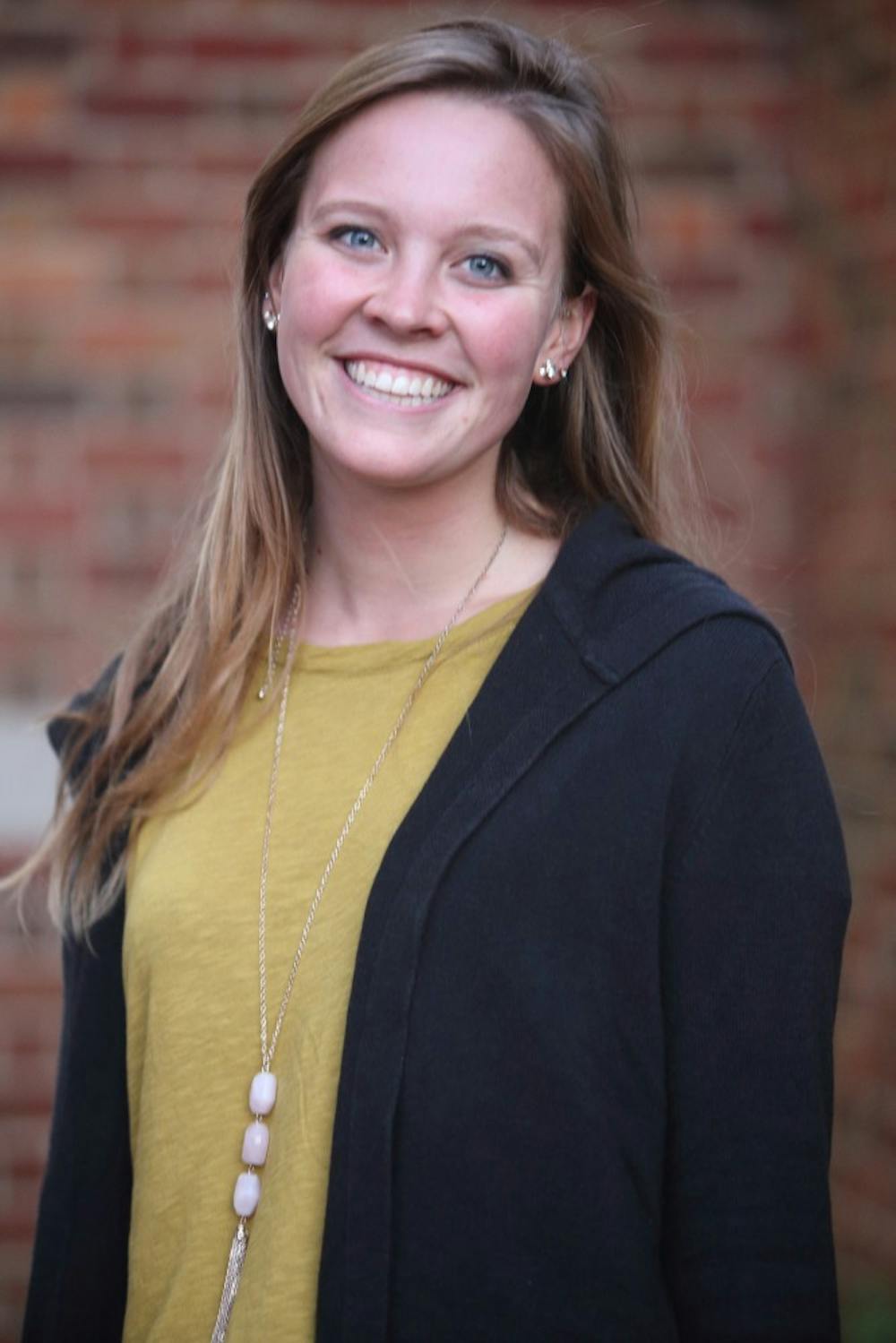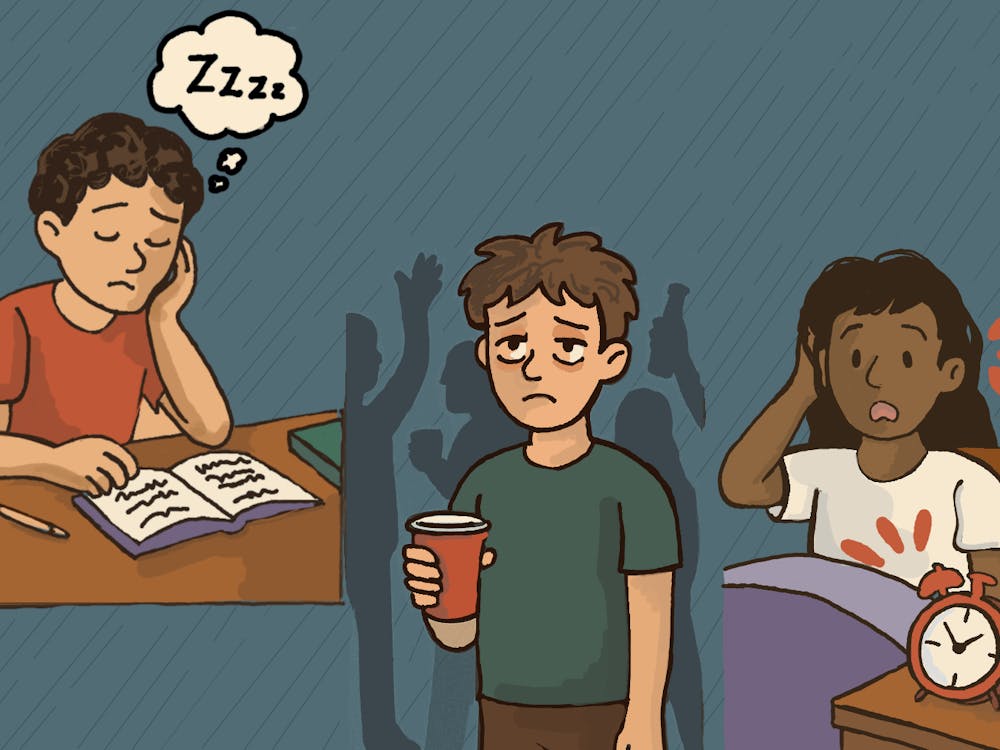I finished up a six-month stint of study-abroad-and-solo-travel this past June, feeling — as I boarded my plane back to the U.S. — a satisfyingly oxymoronic mix of Wanting to Return and Resistance to Leave. Since coming back to the University in particular, I’ve been greeted with a familiar round of questions — Are you glad to be back? What do you miss? Does this feel too normal now? Are you bored? What was your favorite place? What did you learn?
I can’t say I was totally unprepared for the questions. While traveling, my friends and I would ask each other these very things and bounce our answers off the other. On one of our last days before parting ways, my friend Liz turned to me and asked, “Do you think you’ve changed through any of this?”
Upon my return home, many would be quick to assure me that I was same old, same old, that I was just as I had been before, that there were no notable outward differences, that all was well and I — good, old, regular me — was back.
For the most part, I agree. I sense internal changes, shifts within myself, but I also recognize that most of those movements would be imperceptible to anyone other than me. I felt this way both then — when Liz asked me that question in mid-April, right before we were waving goodbye to each other outside a beer-and-sausage joint in northern Germany — and now — when I am sitting outside my house on 14th Street and writing this in between breakfast and my morning class.
But I’ve also noticed changes that have occurred outside of myself. The people I was surrounded by on my study abroad experience came from schools all around the world — there were 600 of us students who were thrown together in the most bizarre, unique and wonderful of ways. And each day that I spend back on Grounds, surrounded not by a hodgepodge of college students from Every Corner of the Universe, but rather surrounded only by students who spend their time here, at the University of Virginia, I realize that people from different places very often have different expectations.
A simple case study — whether it’s a fact or a façade, most people I see at the University talk as if they’ve got the rest of their life charted out just about perfectly. They have not just ideas, but plans — strict, intentional (and often admirable) outlines for their futures. That’s impressive and exciting, no doubt, but for those with a far less coherent idea of how exactly they want to spend the rest of their life — I undoubtedly fall into this later camp — the idea that others already have it all figured out is, unsurprisingly, quite daunting.
Thus, it was a relief to meet a handful of people in my time away from the University who had even less of an idea than I did about what their future held and even less of an idea about what they wanted to do.
“I think I’ll bartend for a bit, then drive across the country. I’ve never seen so much of it, and I think that’s a good place for me to start,” one friend had said, while another thought she’d keep up her current side job as a waitress before either applying to the Peace Corps or nursing school. Everyone’s ideas were different, but there was a common thread among them: they were full of a welcoming uncertainty, all fascinating ideas but each with underlying tones of “I don’t know,” “maybe” and “we’ll see how it works out.”
I think that, at the time, I recognized how special this attitude was though never fully appreciating it. That later part didn’t come until my return to Charlottesville, where I faced an unexpected transition, an unplanned readjustment of my expectations for both myself and my peers. While traveling and surrounded by the happy-go-lucky personalities of my then-peers, I felt myself take up a similar attitude, embracing an easygoing mindset that was more excited about the openness and varied opportunities of my future than about the impressiveness, the shininess and the straightforwardness of a coveted career path or job offer.
But that mindset was questioned upon my immediate return to the University, where I felt embarrassed for saying I had spent the summer working at an unknown local company that I had returned to since high school rather than flying off to a cushy and high-paying internship in Manhattan. I hadn’t felt uneasy about this when I was living it, so why, I wondered, did I feel that way now, months later when recounting it to peers?
The answer, as I’ve come to tell myself, has something to do with expectations. What we want and expect of ourselves is all too often tied to what those around us want for themselves. We like competition and crave acceptance, and even the most independent among us could use an occasional reminder that the only expectations we need to abide by are those set by ourselves, not others.
The other day, a roommate of mine passed an article my way, knowing my love for quippy lines and pretty phrases. It was the closing piece from a book of essays by Cheryl Strayed, entitled “Tiny Beautiful Things: Advice on Love and Life from Dear Sugar.” In this final essay, Strayed answers an advice column in which a twenty-something asked what advice she would give to her younger self. The whole essay is full of those quippy lines and pretty phrases that I love — not to mention some fabulously well-worded advice as well — but my favorite line is this: “Don’t lament so much about how your career is going to turn out. You don’t have a career. You have a life.”







